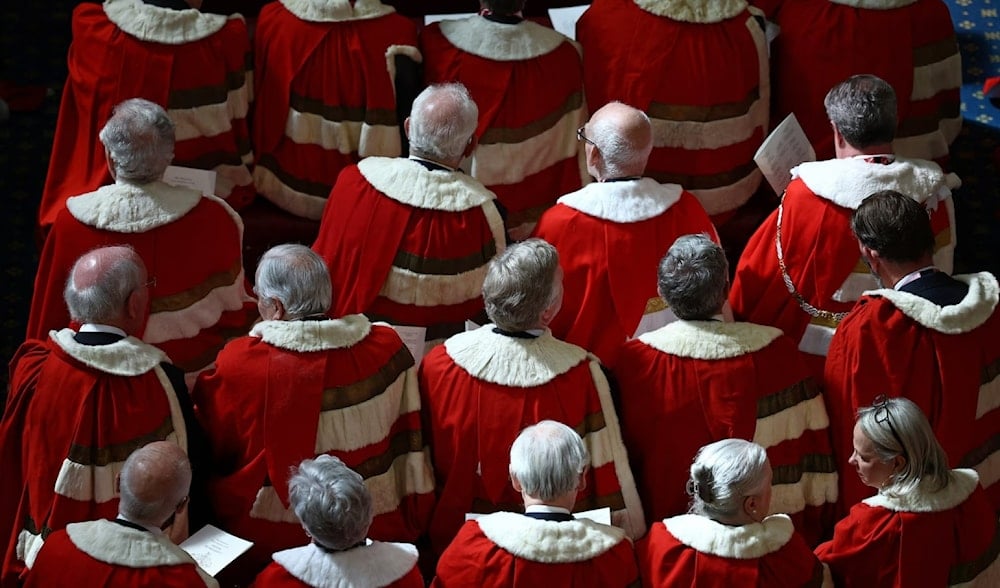UK debt raises 'big red flag' of unsustainability
The UK's national debt sits is raising red flags, with public spending debt now sitting at £22 billion.
-

Members of the House of Lords at the state opening of parliament in London, July 17, 2024. (AFP)
The UK will need to resort to higher tax rates or reduce government spending to combat the risk of the national debt becoming unsustainable, a House of Lords committee warned.
The peers published a report suggesting essential tough decisions and new policies for public finances to decrease debt, which currently stands at just under 100% of the annual national income.
“This report highlights a grim reality: our national debt risks developing on an unsustainable path. This has not received the attention it deserves – partly because of a flawed debt rule, created by the last government, and adopted by the new government in a similar form,” chair of the House of Lords economic affairs committee, Lord Bridges, warned.
Bridges emphasized that peers were raising a "big red flag" on the crucial reduction of Britain's national debt amid pressures for the government to increase its spending on defense, the net zero transition, and care expenses for the aging population.
Rising taxes or reduced spending
The UK is currently facing its worst financial state since WWII, shaped by its inherited public finances. However, the recent report from the peers was welcomed by the newly-elected government.
“The Lords could not have been clearer about the dire state of the country’s finances. We have inherited a decade of lost economic growth, an economy that isn’t working, a £22 billion black hole in our public finances and unsustainable long-term debt," Darren Jones, chief secretary to the Treasury, stated.
Jones highlighted that they are enhancing the Office for Budget Responsibility (OBR) to combat future reckless overspending, reinforcing robust fiscal rules in an attempt to stabilize and improve the economy.
“If we wish to maintain the level and quality of public services and benefits that we have come to expect, we face a choice: taxes will need to rise or the state will need to do less," the report stated, adding that "Addressing this will demand clarity as to the responsibilities and the role of the individual versus that of the state."
“Muddling through is not an option. If this choice is ducked in this parliament, the UK risks being on a path to unsustainable debt," the peers asserted.
The economic affairs committee of the House is composed of former chancellor Norman Lamont and two former permanent secretaries to the Treasury. These peers emphasized that the method the government financed its borrowing made the country's high debt level more susceptible to shocks compared to the past.
“Successive rounds of quantitative easing have seen long-term debt exchanged for short-term debt, and a greater proportion of debt is index-linked and held by overseas investors. This has made the cost of servicing the UK’s debt more sensitive to rises in interest rates and inflation as well as sudden changes in investor sentiment,” the report said.
Chancellor of the Exchequer Rachel Reeves' proposition of reducing the debt ratio has been backed by the 14-strong committee, according to the report. However, they are awaiting how the government's plan to increase productivity and boost economic growth would yield positive results.
The report suggested implementing stricter regulations on managing debt. The government is currently committed to reducing debt as a share of national income by the fifth year of a rolling forecast, enabling an increase in the first four years. Additionally, the peers recommended that the government commit itself to ensuring debt is lower in the next five years compared to its current level.

 4 Min Read
4 Min Read








